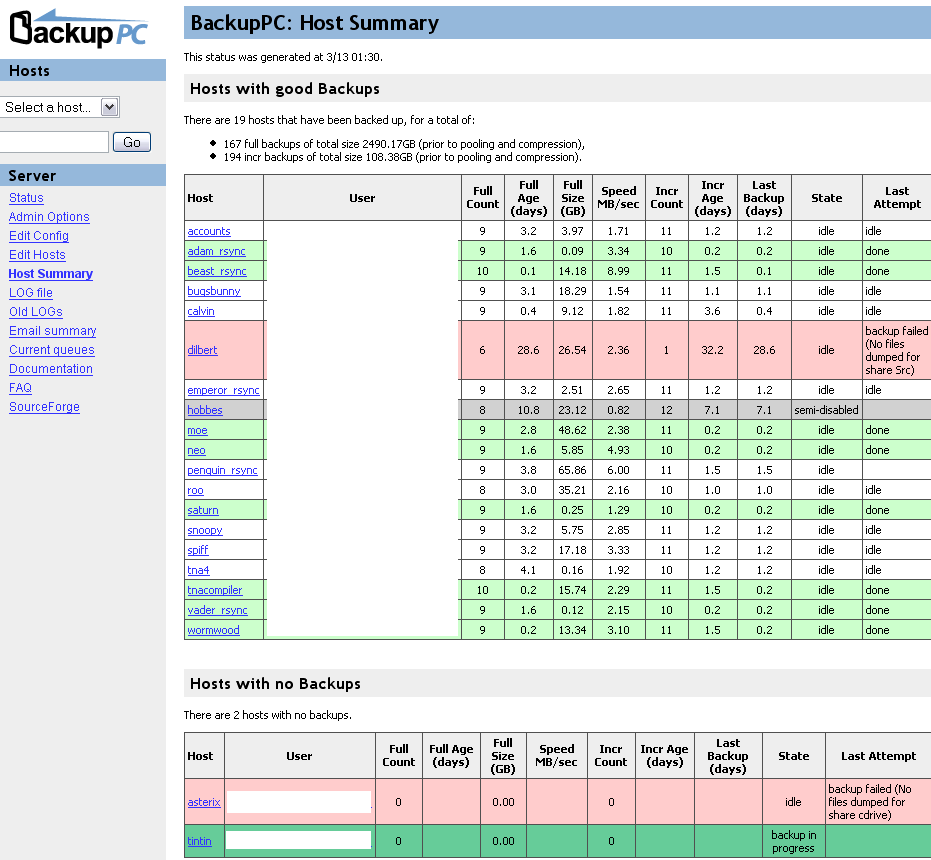backuppc
high-performance, enterprise-grade system for backing up PCs
https://backuppc.github.io/backuppc/4
2 reviews

* Clever pooling scheme minimizes disk storage and disk I/O. Identical files across multiple backups of the same or different PC are stored only once resulting in substantial savings in disk storage and disk writes. Also known as "data deduplication". * Optional compression provides additional reductions in storage. CPU impact of compression is low since only new files (those not already in the pool) need to be compressed. * A powerful http/cgi user interface allows administrators to view log files, configuration, current status and allows users to initiate and cancel backups and browse and restore files from backups very quickly. * No client-side software is needed. On WinXX the smb protocol is used. On Linux or Unix clients, rsync or tar (over ssh/rsh/nfs) can be used * Flexible restore options. Single files can be downloaded from any backup directly from the CGI interface. Zip or Tar archives for selected files or directories can also be downloaded from the CGI interface. * BackupPC supports mobile environments where laptops are only intermittently connected to the network and have dynamic IP addresses (DHCP). * Flexible configuration parameters allow multiple backups to be performed in parallel. * and more to discover in the manual...
If you intent to backup Linux/Unix/macOS hosts, you'll typically need the recommended packages backup-rsync and openssh-client installed on the server side and the normal rsync package on the client side.
A less performant alternative is using tar over SSH instead of rsync, e.g. in case of rsync server/client protocol incompatibilities.
If you intent to backup Windows hosts, you'll typically need the recommended package smbclient installed.
There is also the possibility to backup Windows hosts over SSH and rsync or tar if you have an SSH daemon installed on the Windows host, e.g. via Cygwin or Windows subsystem for Linux (WSL). In that case the same packages as with Linux/Unix/macOS are needed.
Latest reviews
5
ВеликолЕпный . содержит почти всЁ что можно мечтать в программе резервного копирования и для дома и для предпрриятия . но мне нехватает запуска по тОчному времени . и документацию бы на русском языке т.к. программа непростая , со множеством взаимозависящих установок .
5
Great home network backup server. Relatively easy to setup although still probably not for novices. You'll need to know a bit about rsync/smb/tar. You can backup windows clients using smb or rsyncd if you install DeltaCopy on the windows client. However, it's server pull only, no client push. Great for central backup management, but checkout rdiff-backup if you want single user backups.